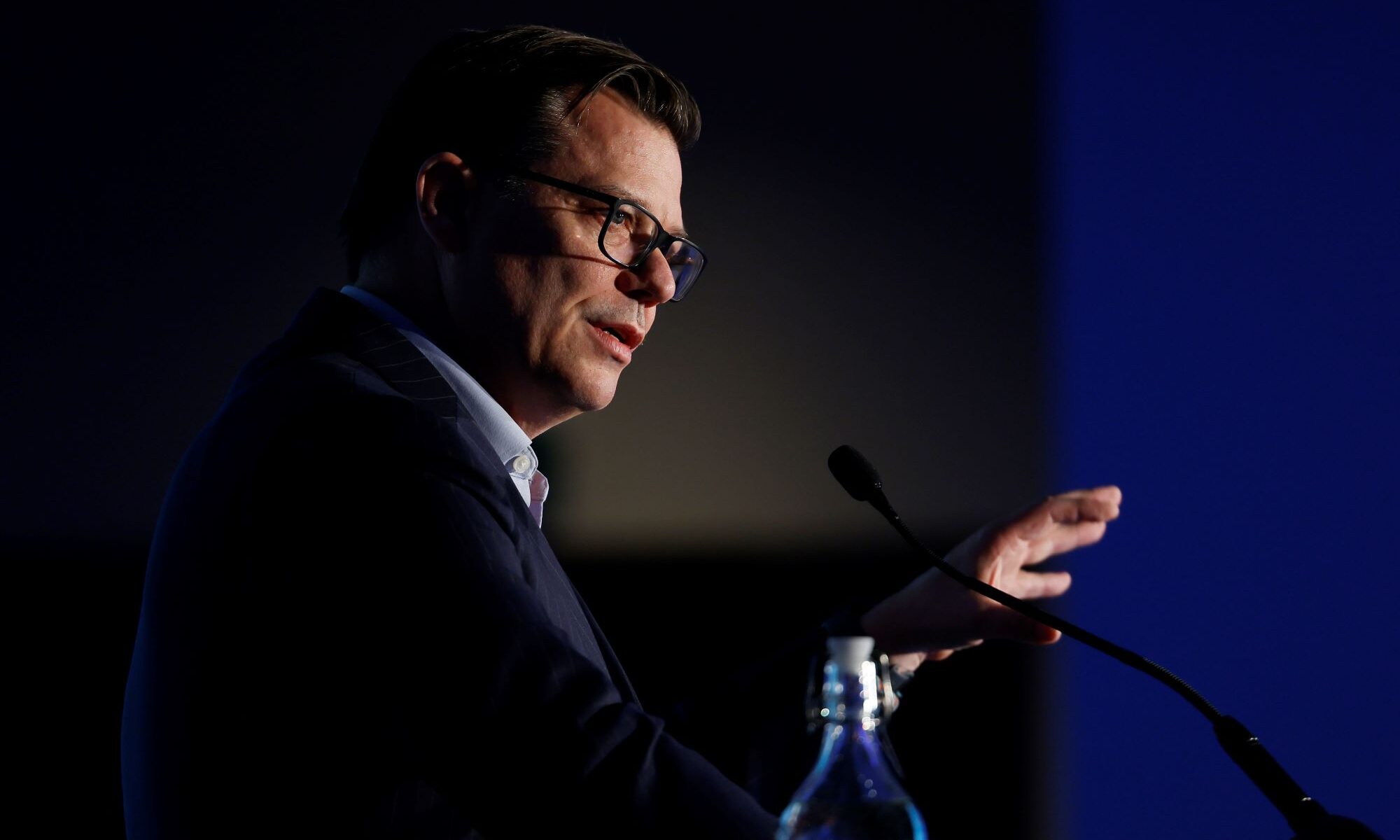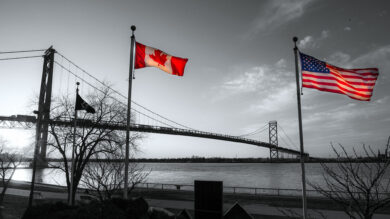
What Americans are really feeling about the election — and Canada
A full 70 percent of Republicans say that they support a tariff of 10 to 20 percent on all imported goods, including those from Canada, according to data presented at the Public Policy Forum’s Fall Lecture 2024: Canada’s Relationship with the U.S. Clifford Young, President of Ipsos U.S. Public Affairs, also revealed that more than a third (35 percent) of Democrats would also support such a tariff.
But, as Young put it Thursday evening in Ottawa, “America is a populist place.” The survey revealed that Americans aren’t simply supportive of tariffs on Canada — they appear to favour tariffs in general, telling Ipsos by roughly the same proportions they would also support a tariff of 60 percent on goods imported to the U.S. from China.
That kind of steep levy on Chinese imports is an idea Republican presidential candidate Donald Trump floated earlier this fall. Tariffs are a core part to his economic policy plans. At a rally in Michigan in September, Trump said that tariffs “are the greatest thing ever invented.” This likely helps explain the support for tariffs amongst Republican voters. Like people everywhere, Americans are “policy agnostic,” Young said. “They don’t understand the specifics, they take their lead from their leaders — and indeed that’s what we find in our polling.”
Trump’s opponent, Democrat Vice-President Kamala Harris has said his proposed tariffs would be “a sales tax on the American people,” and she has instead proposed raising corporate taxes. Though the strategies are different, the intent is similar: to make voters feel like someone else is paying in a system that no longer seems to benefit them. It fits a trend of “broad and wide-based belief that the system is broken,” that pollsters have heard from people both around the world and in the U.S., Young said Thursday. It’s why inflation has emerged as a key issue. “Many Americans feel left behind and left out.”
In fact, who’s in and who’s out is central to what divides Americans across party lines today, Young explained. Between Trump’s Republicans and Harris’ Democrats lies a question about what America was and what it could be, critical to which is the debate about who gets to call themselves an American in the first place. It’s evident in the debate around immigration. That question won’t be answered on Nov. 5, Young said. “This is not going anywhere. Independent of who wins this will be with us for the near future into the near term, I would say for the next half generation,” he said.
Canada’s in a good place
Where does that leave America’s closest neighbour, Canada? According to the Ipsos data, it’s in a good place, Young said.
The Ipsos survey found that 87 percent of Americans say they view Canada favourably — putting it ahead of the U.K. (84 percent), Japan (82 percent), and Germany (76 percent) in the minds of Americans.
Moreover, nearly a third (29 percent) of respondents ranked Canada as America’s strongest ally, with only the U.K. out-placing it in the minds of Americans (53 percent). And nearly a third (27 percent) of Americans said they see Canada as America’s strongest economic partner. Ironically enough, given the overall opinion on tariffs, only China outranked Canada on that score — 38 percent of respondents named it the strongest economic partner for the U.S.
“When talking about the new administration, whatever it might be, Canada is in a strong place,” Young said. Canada “has a lot of equity with the American populace, which I think is important to any sort of negotiation, any sort of engagement.”
The U.S. election odds
As for the current race for the White House, it is extremely tight, Young said Thursday, with both campaigns operating on-message and on-strategy. But it’s on the economic argument that Trump may have an advantage. As he points the finger of blame to Harris for high inflation during the Biden administration, Trump appears to key voters as being “more credible,” Young said.
“In all the key swing states, depending how you put the data together, it looks like it’s all trending Trump ever so slightly,” Young told the Ottawa audience, though he noted that “you can have a cough and it might swing the other way.”
But it’s on the economy where Trump “has made inroads with key constituency groups,” including what Young calls “Biden orphans” — people who supported Biden in 2020 but who moved onto the fence because of inflation. “Harris tried to bring them into the fold, Trump is carving some of them off,” Young said.
“So, what do I say? I think it’s 50-50, leaning Trump,” Young said. “Right now.”




